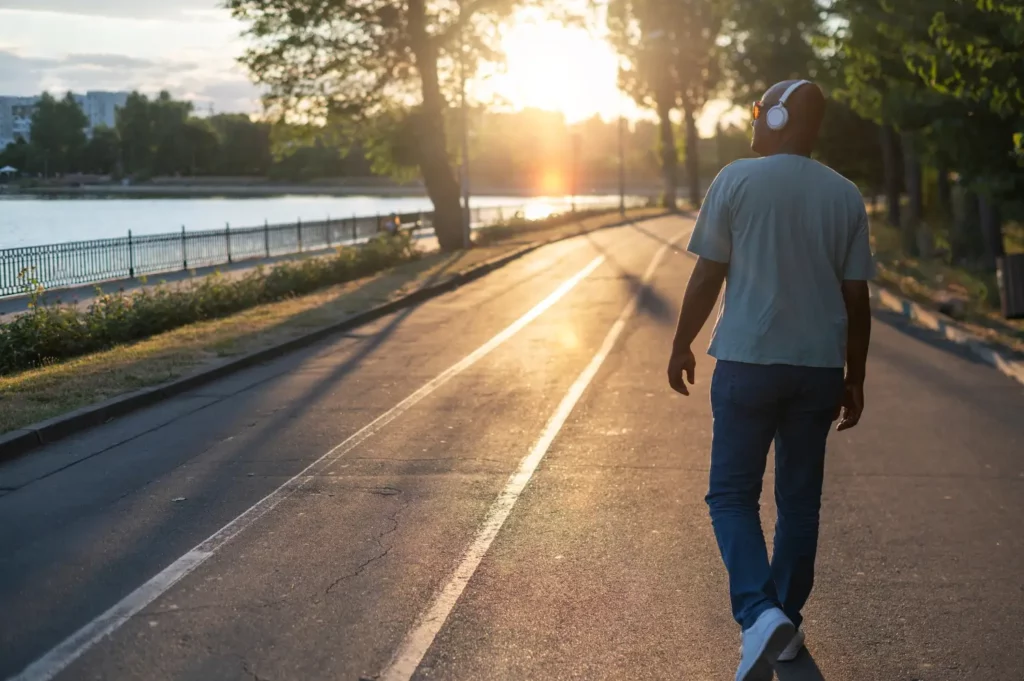Walking, Running and Swimming: The Most Underrated Cardio-therapuetic Superpowers You Already Have!

“A journey of a thousand miles starts with one step.”
Lau Tzu
What if the key to healing, happiness, and health was as simple as putting one foot in front of the other?
What if the key to long-term addiction recovery was connected to your feet and your arms?
Walking and running aren’t just a way to get from A to B. Swimming isn’t just about playing in a pool of water—both activities are game-changers for your mind, body, and soul. All three are grossly underrated for their therapeutic abilities.
For 13 months after rehab, I walked daily—rain or shine, I ran multiple marathons weekly, and swam bi-monthly. These activities became my therapy. I fell in love and cross addicted to fitness post-rehab when I linked it to improving my mental, emotional, and spiritual health and well-being. Physical benefits became the bonus.
Personal Reflections
Why Walking, running, and swimming are the Ultimate Therapy
For Your Brain. (Psychological Resilience)
Cardio exercises, especially walking, clear mental clutter, boost creativity, and help reduce stress and anxiety by flooding your brain with endorphins. I am an insomniac, and I suffer from anxiety and situational depression. Walking tackles all three perfectly.
For Your Heart. (Emotional relief)
Angry, anxious, or stressed? Walking, running, and swimming channel those emotions into something positive and train your brain to choose healthier coping mechanisms. In active addiction, when I felt these emotions, I used to turn to alcohol and substances to cope. The consequences were devastating to my sense of self and my relationships.
For Your Soul. (Spiritual Joy and Support)
Whether strolling through a park or your neighborhood, running outdoors, or swimming in the ocean or lake, these activities foster mindfulness. You notice the beauty around you and stay grounded in the present. My anxiety and negative rumination and depression often hold me hostage, keep me isolated and sad. Never when in motion. When I move, I am happy.
For Your Body. (Physiological strength and well-being)
These are cardio exercises that strengthen your heart, improve lung capacity, burn calories, and are good for strengthening your joints—a win for all fitness levels.
Walking in Recovery. (Relationship improvement with self and others)
For anyone recovering from addiction, desirous of improving mental health, walking, running, and swimming provide structure, discipline, and a healthy outlet for cravings. It replaces negative habits with positive ones, builds confidence, and helps you reconnect with yourself and others, if done in groups, excellent for better time management and positive feelings.
Your Walking Game Plan
1. Dress for Success: Invest in comfortable shoes and weather-friendly gear.
2. Start Small: Begin with 10 minutes a day and build from there.
3. Track Progress: Apps like Adidas Running or Pacer turn walking, running, and swimming into a fun, motivating challenge.
4. Mix It Up: Indulge solo for reflection or with friends to strengthen relationships.
5. Make It Fun: Explore new routes or add a playlist to keep it exciting.
Call to Action
• To those in recovery: Take that first step. Walking can transform your life.
• To caregivers and professionals: Promote walking as a simple but powerful therapy.
• To everyone else: Let’s create communities that encourage walking as a tool for well-being.
Conclusion
Walking, running, and swimming are more than just movement to me—they are a path to healing, growth, and joy.
Whether you’re battling addiction, poor mental health, seeking clarity, or just trying to feel better, the solution might be as simple as stepping outside if you cannot purchase a gym membership or a treadmill. One step is all it takes to repair, rehabilitate, restore, regenerate, reorganise, and reignite self-love and restart healthier relationships. Start today!









